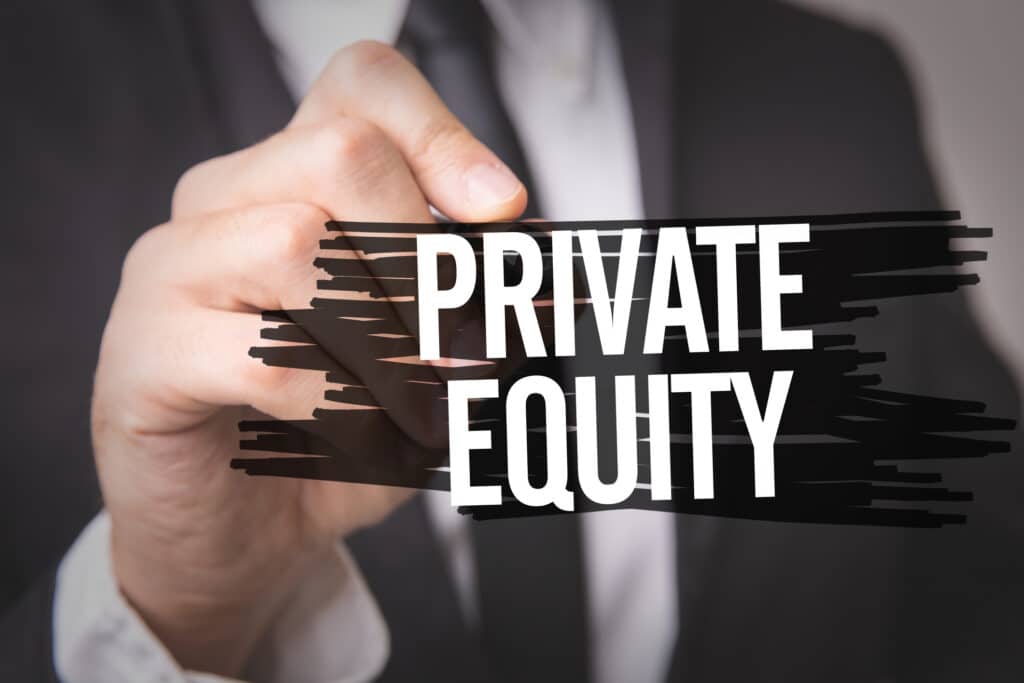Investment services for expats – what should you look out for? That will be the topic of today’s article.
If you have any questions or want to invest as an expat, you can email me (advice@adamfayed.com) or use these contact options.
In one of our previous articles, we have learnt the importance of financial planning and how it should be done by expats. Now, we will discuss the importance and information of investments for expats.
To begin with, let us start by knowing about the importance of investing, especially when you are living in another country as an expat.
Make it a habit
If you never invested in anfything in your life, then the first thing you need to do is make it a habit. You might even start by considering this as a hobby just like you read books or learn music.
Many people who have started investing as a hobby are now investing on an expert level and gained a lot of knowledge in that field. How to do it?
Well, just like any other hobby, investing also requires some extent of knowledge. You should first gain some knowledge about various types of investments, their risk profiles, process, etc.
Without proper knowledge regarding investments, if you invest your hard-earned money into it, then there is a good chance that you might experience losses.
For the people who want to opt for DIY investing, we offer tips for turning them into an expert, and then, they can take care of their investments on their own.
- Affordability

The main aspect that needs to be taken into consideration before you start investing is that you should be able to afford your investments. The key element of investing is money, and you should make sure that you can afford it.
Affording the amount that you need to invest is one thing, but you should also be able to cope with the losses if there are any. Yeah, as hard as it might sound, there is a good possibility that you may experience losses.
Nobody can make investments that are profitable unless they have a huge understanding of each and every type of investment and have the skills to manage their investments efficiently.
It is a wise decision to make an investment that is not more than what you can afford to lose. In that way, even when you experience losses, you will still be able to maintain your financial stability.
You should understand that all types of hobbies involve money, but when you are considering investment as a hobby, you can gain money more than what you invested if you have enough knowledge.
To start as a hobby, it is better to start with investments that are of lower risk rather than choosing riskier investments. To be precise, it is better if you try and avoid leveraged accounts that may result in extreme losses.
- Maintain your pace
If you don’t have any sort of financial knowledge, then you must always walk before you start to run. Just like any other profession or skill, it takes some time to master and gain some expertise.
You cannot go to the gym for one day and start lifting 100 kilos or you cannot just practice running for one day and try for the Olympics. Just like that, it requires a lot of time and effort before you get some expertise.
Start by investing on a small scale and then you can get to the next level and become a pro. Investing on a small scale is an immensely satisfying process while you don’t have to risk your money or damage your financial objectives.
Another main aspect that should consider is that long-term financial objectives play an important role in your life.
By long-term goals, we don’t mean buying a Lamborghini or owning a private jet, but instead, you should set some liberal goals that will be beneficial for you and your family like retirement planning or buying a house.
If you don’t have any sort of long-term financial goals, then you can avoid investments (even as a hobby).
- Importance of fundamentals
There is a quote in the movie “John Wick” that says “Rules, without them, we’d live with the animals”, and that’s true. Without learning the rules and without applying them, we can’t be able to achieve anything in our lives.
It might be somewhat hard to learn all the rules and regulations and apply them to the process of investing, but you, as an expat, will find it hard to take care of your investments.
While investing as an expat, you should always try and find the details regarding the risks involved, costs related to it, and the losses that may incur.
You should always invest money based on your risk profile, your financial stability, your age, and your financial goals.

- Risk
Investments come with a risk where you might not be able to seek profits or you might lose your invested money, or in some cases, you might even lose all the money you have invested.
Almost every investment (excluding bank accounts) come with some amount of risk and when you cannot tolerate that risk, it is wise to avoid those investments.
As a beginner-level investor, try to seek investments that are of low risk such as bonds.
Why? Because when you are not familiar with how investments work, and you choose to invest in high-risk assets, then you might lose all the money that you have invested.
However, when you invest in something of lower risk or start by investing smaller amounts, you can cope with the losses and gain some knowledge on how to take care of your investments.
As we always say, some sorts of investment opportunities such as cryptocurrencies, CFDs, currency pairs, or contracts. In such scenarios, people tend to lose money more than they would have a probability of gaining money.
By investing in opportunities such as those that have been mentioned above, there is a higher chance to lose money (including that you’ve invested) rather than gaining profits.
- Select a right adviser

Apart from the people who don’t want to take care of the investments on their own, people who choose an adviser should remember that choosing the appropriate adviser is very essential while investing.
Make sure that you are seeking advice from a professional, otherwise, you will likely lose the money you’ve invested rather than gain profits.
Always seek advice from a professional so that they can make sure that your investments are on the right track, and you earn profits from them.
If you are finding it hard to acquire the services of a financial expert, then make sure to contact us by scrolling to the bottom of the page and getting in touch with us.
Investment Services for expats
There are various types of investment services available for expats. First, there are some traditional investment opportunities such as stocks or bonds, and then, there are specialized investment options known as private investments (like private equity).
Today, we are going to discuss the most important types of investment vehicles available for expats and how you should proceed.
First, we start by talking about the traditional investments that are available for expats.
- Stocks

In the past, it was a bit hard to invest in the stock markets of your home country (as an expat) or any other country.
However, with the advancement of technology, everything has been made easy, and anyone makes invest in the stocks of any country.
The process has been made so easy that all you need is a smartphone or a laptop, and you are all set to purchase stocks.
Even in some of the big nations such as the United States, there aren’t any restrictions imposed on foreign investors who want to invest in the country’s stock market.
To make the process much easier, most countries’ stock exchanges and brokerages offer accessibility to the stock market of other countries.
You can even opt for investment funds such as equity funds or mutual funds, where you can get access to a wide range of foreign stocks.
Some ground rules are to be considered before investing in stocks, which have been provided below.
One of the most common methods to purchase stocks is by creating a brokerage account/trading account and buying stocks with the help of their services.
When you choose brokerage accounts/trading accounts, there are two types of fees namely, trading costs and non-trading costs.
If we talk about trading costs, there are generally charges such as spreads, commissions, etc., which are charged only when you are trading stocks (buying or selling).
On the other hand, there are non-trading costs such as minimum balance requirements, withdrawal fees, account opening fees, etc.
To relieve you from the hassle of finding an appropriate trading account, we have done some research and have provided some details regarding the best trading accounts available, and you can get those details by clicking on this link.
Apart from the charges, there are two types of taxes, which also play a key role in the number of returns you obtain from equity investments.
The first and most important types of tax that is imposed on the returns from the stock market are “Capital Gains Taxes”. When you sell stocks, then you will be liable for capital gains taxes in many countries.
Furthermore, there are two types of capital gains taxes known as “Short-Term Capital Gains tax” and “Long-Term Capital Gains tax”.
In general, the short-term capital gains tax is just the same as the usual tax bracket, whereas the long-term capital gains tax will vary depending on the term that the asset has been held for, taxable income, and the status of tax filing.
However, some countries do not impose the capital gains tax on their residents or citizens such as Singapore, Malaysia, New Zealand, Belize, Monaco, etc.
Other than the capital gains tax, there will be a dividends tax that is taxable on the dividend income, which has been obtained from your equity investments.
Dividends come under the taxable income in the majority of the countries, however, dividends are taxed based on the status of the individual, i.e., whether the dividends are qualified or non-qualified.
Non-qualified dividends are also referred to as ordinary dividends and are taxed as per your general tax bracket, while on the contrary, qualified dividends are taxed on special rates based on taxable income and filing status.
Nevertheless, people who gain more income in the form of dividends are liable for higher tax brackets, and the tax rates may vary from time to time.
Tips – You can hold the dividends for a significant period so that they may be considered as qualified dividends.
While you are holding an investment, try to hold it for more than a year so that you will become eligible for the long-term capital gains tax rate. In this way, you can pay less.
While following these two tips, always make sure that the returns on your assets are in line with your investment goals, otherwise, do what is best for you.
Whenever you experience capital losses on your investments, make sure that you find out whether you can offset your taxes on capital gains.
In that way, you can easily deduct the difference on your tax returns, and how much you can claim for deductions will depend on the country in which you live.
To get familiar with all the terminology related to stocks, you can click here.
- Bonds

Another mainstream investment option available for expats are bonds, however, most types of bonds may not be available for expats. In such circumstances, offshore bonds come to the rescue (especially for expats).
Offshore investment bonds, in most cases, come in the form of tax wrappers and are proven to be helpful for investors (especially UK residents).
Even though bonds come with a good set of advantages, you need to understand that there are some fees, commissions, and charges associated with them.
Depending on the provider, the tenure and the returns also vary according to various types of influential factors such as level of control, required amount of diversification, risk tolerance, etc.
However, bonds are known to be in the category of low-risk investments, and individuals need not worry about losing all their money, because what happens in the worst-case scenario is that they’ll fail to beat inflation.
Conversely, you should also remember the fact that bonds are low-risk investment vehicles, and therefore, the returns made available on them may or may not suit your investment goals.
To get familiar with offshore investment bonds, we have provided a detailed article that covers all the details related to offshore bonds, and you can access it by clicking here.
- Real Estate Investments

Many major countries including the United States allow individuals to invest in real estate, without having the requirement of citizenship.
Even the process of qualifying for a mortgage has been made easy in many countries such that people won’t have to pass too many hurdles to qualify.
If you intend to invest in real estate, you should know that countries such as the United States, Canada, Germany, the UK, etc., are known to be profitable.
There are six major types of real estate investments, which are known to be beneficial for investors, which have been provided below:
- Rental property
- Real Estate Investment Groups (REIGs)
- Flipping
- Real Estate Investment Trusts (REITs)
- Online Real Estate Platforms
- Serviced Accommodation
Now, let us have a brief look at each of these investments so that you have a better understanding and choose the right one that suits your needs and goals.
Rental property – As you might already know, rental property investments refer to the process where you buy a property and rent it out. The tenants who wish to live there would pay you money.
Most people who buy properties would buy them using mortgages and such mortgage repayments could be offset using the payments received from tenants.
Although it might seem like a good idea, once the mortgage has been cleared, you will own the complete property, and you can sell it for a higher rate.
REIGs – People who wish to get involved with real estate but don’t want to buy the property by themselves go for this option, and because of that, they won’t even have to bother about managing the property or maintaining it.
While investing in REIGs, you should also maintain some financial stability along with putting in some money as an investment.
Think of REIGs as a sort of mutual fund where you won’t buy the actual assets or won’t have to manage them.
Flipping – Flipping is a common practice among the majority of individuals all around the world. It is a practice where people buy a property, take care of the repairs/renovations, and sell it for a higher price.
Even though it is a bit risky, the returns from this sort of investment are usually higher. If you want to go for this method, then make sure to buy undervalued properties.
REITs – Just like REIGs, REITs won’t offer the actual asset to the investor, however, they offer the returns in the form of dividends. In most cases, REITs offer around 90% of their returns to their investors in the form of dividends.

It is a good form of regular investment, where the investors have exposure to some extremely priced real estate properties such as office buildings, shopping malls, etc.
Online Real Estate Platforms – The providers collaborate with entities or individuals who invest in major commercial properties or bigger residential deals.
With the help of these online platforms, investors can collaborate with real estate developers, where the funds from investors are taken to finance the projects in form of equity or debt.
Serviced Accommodation – Like keeping the dessert for the last, we are discussing this option in the end because it is one of the most advantageous options for investors.
Usually, with most types of serviced accommodation, the investor can stay in the property for a specific period, and when they don’t, the property is rented out.
Serviced accommodations usually comprise properties such as rooms in apartments, hotels, or others that are in demand, especially by tourists or tenants.
However, the secondary market for serviced accommodation is quite drastic, and it is wise to choose the options that are favourable for the investor (at least for their own needs).
To get more knowledge about real investments and the terminology related to them, you can access all the details by clicking this link.
- Private Investments

Private Investments are the type of investments that aren’t made available for ordinary people. Private Investments are either offered by some reputed financial institutions or expert financial advisors.
Private Investments comprise various types of investments such as private investment funds, private equities, investments made in hedge funds, ventures in oil and gas, private investment partnerships, etc.
So, when you want to get yourself involved with private investments as an expat, especially when we are talking about private investment funds, the fund collects money from various investors like you.
Then, all the funds that have been collected from expat investors such as your, and those funds would be handled by a fund manager.
Another lucrative form of private investment available for expats is a private equity, which cannot be accessed with the help of a public exchange.
The funds invested in private equity would be used by private companies making the investors have a chance of investing directly into private companies.
Otherwise, these funds can be used for activities such as buyouts of public companies to delist public equity.
This is different from venture capital as venture capital is the funding provided to startup companies or businesses that have a proven potential for seeing growth in the future.
Over history, most investments that were put into private equity often provided the investors with a return of 11% to 12%, which is quite impressive.
However, past performance should never be considered as an indicator while investing, and therefore, you should always put your money into investment opportunities that suit your financial goals.
Pained by financial indecision?

Adam is an internationally recognised author on financial matters with over 830million answer views on Quora, a widely sold book on Amazon, and a contributor on Forbes.



